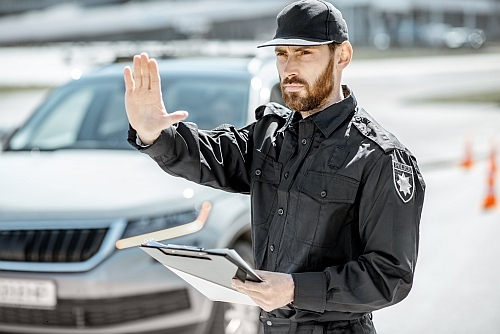- February 15, 2024
When they meet with an Orangeburg DUI attorney, many clients say that the police found incriminating evidence in their cars. This may be something an attorney can use to defend you from the charges, by proving that the officers should not have searched your vehicle after the DUI arrest.
Let us now discuss this sensitive topic: can police search your car without a warrant after you were arrested for DUI?
The Fourth Amendment Does Not Provide Total Protection against Searches
Like most Americans, you know your constitutional rights, including the one granted by the Fourth Amendment. The legal text says that US citizens are protected from unreasonable searches of their “persons, houses, papers, and effects.”
This is where the police benefit from a legal loophole. Since 1925, the US Supreme Court has determined that there is a constitutional difference between houses and cars. This means that warrantless searches of vehicles are possible based on the officer’s reasonable suspicion.
What Are the Situations When the Police Search of Your Car Is Legal?
Coming back to the DUI arrest scenario we are discussing, these are the cases when a police officer may search your car and use any item found as evidence against you:
1. You Give the Officer Permission to Search the Car
This is one of the most frequent scenarios. The officer pulled you over for a DUI check and your BAC level is above the legal limit. You are already distracted by the potential consequences of this. So, when the officer casually asks “can I look inside your car?” you automatically say “sure, no problem.”
This is a big mistake. With these words, you give the officer permission to look everywhere inside your car, including:
- The glove compartment
- Under the seats
- The trunk.
Any item they find can be legally used as evidence against you. Remember, you have the legal right to say no to a vehicle search. This means that the officer will need either a warrant or a valid reason to perform the search.
2. The Officer Acts under Facts Which Trigger the Constitutional Exception
In some situations, a police officer can perform a vehicle search if they have reliable information that:
- You are carrying a weapon
- You have illegal drugs in your vehicle
- You have any item that can be used in a criminal activity in the vehicle.
For example, the officer can see a glass tube protruding from the glove compartment. Since these devices are often used to consume drugs, the police officer can reasonably conclude that you may have illegal drugs in the vehicle.
3. The Officer Has Probable Cause to Perform a Car Search
Probable cause is not always clearly defined – and this is what an Orangeburg DUI attorney will look for in trying to dismiss the charges against you. For instance, as they are leaning towards your car to take your documents, the officer says that they feel an odor of marijuana or alcohol.
This would give the officer probable cause to search your car. The issue is that, even if they do not find drugs inside the car, the officer can seize a weapon, an open container, or any other item that may lead to further criminal charges against you.
4. Your Vehicle Is Impounded
If your vehicle is impounded after a DUI arrest, the police can search your car without a warrant. However, the search does not cover any locked compartment inside the vehicle. The officers will need a warrant to open it and look inside.
Talk to an Orangeburg DUI Lawyer If Your Car Was Searched without Warrant!
For an Orangeburg DUI lawyer, an essential part of the defense is how the police obtained the evidence against you. In some cases, they may search your car without a warrant and despite the fact that you said no.
However, it is also possible for a skilled attorney to find that the police officer did not follow the legal procedure. Thus, the evidence should be excluded and not used against you in court.
As a new client, you benefit from a free case evaluation, so call us today at 803-353-1969 to schedule yours!


